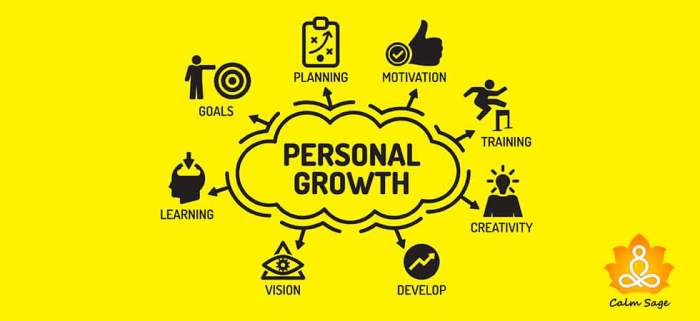Self-Improvement Tips takes center stage as we dive into a world of personal growth and mental well-being. Get ready for some serious wisdom on how to level up your life!
Let’s explore the benefits, setting realistic goals, daily habits, and how to beat procrastination like a boss. It’s time to unleash your full potential!
Benefits of Self-Improvement Tips

Self-improvement is crucial for personal growth as it allows individuals to develop new skills, enhance their strengths, and work on areas that need improvement. By actively seeking self-improvement tips, individuals can strive to become the best version of themselves.
Enhancing Mental Well-Being
Self-improvement tips play a significant role in enhancing mental well-being by promoting self-awareness, mindfulness, and emotional regulation. Engaging in activities that focus on personal development, such as meditation, journaling, or exercise, can help individuals manage stress, anxiety, and other mental health challenges.
Positive Impact on Relationships
Self-improvement can positively impact relationships by fostering better communication, empathy, and understanding. When individuals work on themselves and strive for personal growth, they are better equipped to handle conflicts, express their needs effectively, and build stronger connections with others.
Setting Realistic Self-Improvement Goals
Setting realistic self-improvement goals is crucial for personal growth and development. It involves creating achievable objectives that can be worked towards effectively.
Strategies for Setting Achievable Self-Improvement Goals
- Start by identifying areas in your life that you want to improve.
- Set specific and measurable goals to track your progress.
- Break down larger goals into smaller, manageable tasks.
- Ensure your goals align with your values and priorities.
- Adjust your goals as needed to stay motivated and on track.
The Significance of Setting a Timeline for Self-Improvement Goals
- Having a timeline helps create a sense of urgency and accountability.
- It allows you to track your progress and make adjustments if necessary.
- Setting deadlines can prevent procrastination and keep you focused on your goals.
- Breaking down the timeline into smaller milestones can make the journey more manageable.
Breaking Down Larger Goals into Smaller, Manageable Tasks
- Divide big goals into smaller action steps to prevent feeling overwhelmed.
- Assign deadlines to each task to maintain momentum and progress.
- Celebrate small victories along the way to stay motivated.
- Regularly review and adjust your tasks to ensure they are still relevant and aligned with your goals.
Daily Habits for Self-Improvement

Developing daily habits that promote self-improvement is crucial for personal growth and success. Consistency in practicing these habits is key to seeing positive results and progress. Staying motivated while establishing new habits can be challenging, but with the right strategies, it is achievable.
Examples of Daily Habits for Self-Improvement
- Setting aside time for daily reflection and goal-setting to stay focused and motivated.
- Engaging in regular physical exercise to boost energy levels and improve overall well-being.
- Reading self-help books or listening to podcasts to gain new knowledge and insights.
- Practicing mindfulness and meditation to reduce stress and enhance mental clarity.
The Importance of Consistency in Practicing Self-Improvement Habits
Consistency is key when it comes to self-improvement habits as it allows for gradual progress and long-term growth. By consistently engaging in positive habits, you can build momentum and create lasting change in your life.
Tips on How to Stay Motivated While Establishing New Habits
- Start small and gradually increase the intensity or duration of the habit to prevent burnout.
- Track your progress and celebrate small wins to stay motivated and encouraged.
- Find an accountability partner or join a support group to stay committed and accountable.
- Reward yourself for sticking to your new habits to reinforce positive behavior.
Overcoming Procrastination in Self-Improvement
Procrastination can have a significant impact on self-improvement goals as it hinders progress and delays personal growth. It often leads to missed opportunities, increased stress, and a sense of unfulfillment. Overcoming procrastination is essential to stay focused and motivated on the journey of self-improvement.
Effective Strategies for Overcoming Procrastination, Self-Improvement Tips
- Acknowledge the problem: Recognize when you are procrastinating and identify the reasons behind it. This self-awareness is the first step towards overcoming procrastination.
- Break tasks into smaller steps: Divide your goals into manageable tasks to prevent feeling overwhelmed. This approach makes it easier to get started and stay on track.
- Set deadlines and prioritize: Establish deadlines for each task and prioritize them based on importance and urgency. This helps create a sense of accountability and motivates you to take action.
- Eliminate distractions: Identify and eliminate distractions that contribute to procrastination, such as social media, TV, or irrelevant tasks. Create a conducive environment for productivity.
- Reward yourself: Celebrate small victories and reward yourself for completing tasks on time. Positive reinforcement can help reinforce productive behavior and break the cycle of procrastination.
Role of Time Management in Combating Procrastination
- Plan your day: Utilize time management techniques like to-do lists, calendars, and schedules to organize your day effectively. Allocate specific time slots for each task to avoid procrastination.
- Set realistic goals: Break down your long-term goals into smaller, achievable milestones with deadlines. This approach helps track progress and prevents procrastination due to overwhelming objectives.
- Prioritize tasks: Identify high-priority tasks that align with your self-improvement goals and focus on completing them first. Effective time management ensures that important tasks are not postponed indefinitely.
- Practice discipline: Cultivate discipline by sticking to your schedule, avoiding distractions, and staying committed to your self-improvement journey. Consistent effort and self-discipline are key to overcoming procrastination.